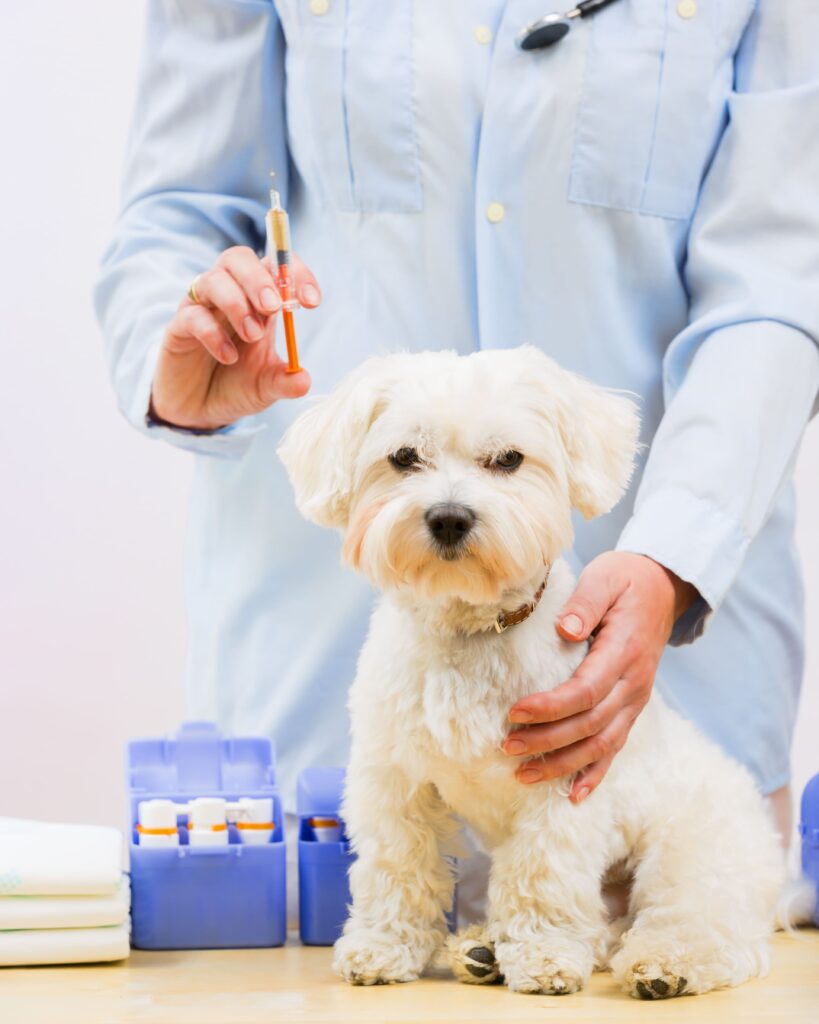Dog Vaccinations: What, When, and Why?

Sometimes we forget the importance of regular veterinary care for our dogs. Vaccinations and visits to the vet not only protect our pets but also safeguard other animals in the environment. Therefore, it’s a responsibility that not only affects us as a family but also society.
What is vaccination?
It’s the inoculation, meaning the artificial introduction of a substance, microorganism, or part of a virus into the body, to which the body responds by creating antibodies as a defense mechanism.
Why should I vaccinate my dog?
Vaccination not only protects your dog from contagious bacteria and viruses, reducing the risk of infection, but it also safeguards humans from infectious and transmissible diseases like rabies. Furthermore, vaccines help prevent and control epidemics.
How and when should I vaccinate my dog?
Vaccination guidelines, frequency, and the type of vaccine depend on the dog’s breed, the geographical area it resides in, and its intended purpose (companion, working dog, etc.).
What are the recommendations?
It is recommended that an unvaccinated puppy should not come into contact with other dogs to prevent the spread of infections. Furthermore, it is of utmost importance to have a veterinarian who provides the necessary information to care for the dog’s health and assesses its health status, deworming, and other aspects to ensure proper immunity for the dog.
Which vaccinations are mandatory and which are not?
Vaccinations for dogs can be classified as mandatory or optional, and this varies depending on the geographical location, as a vaccine that is optional in one country may be mandatory in another where the disease is more common.
What is the basic vaccination schedule in Spain?
- 6 weeks: Parvovirus, Canine Distemper, and a polyvalent vaccine.
- 8 weeks: Canine polyvalent vaccine, which reinforces the first two and covers three additional diseases: hepatitis, parainfluenza, and leptospirosis.
- 12 weeks: A booster of the canine polyvalent vaccine.
- 16 weeks: Rabies (mandatory) prior to animal identification, which typically includes the placement of a microchip.
- From the following year: Booster shots for polyvalent vaccines and rabies.
What diseases do these vaccines immunize against?
- Polyvalent Vaccines
- Pentavalent: Canine Distemper, Adenovirus 1 and 2 (hepatitis and kennel cough), Parvovirus, and Parainfluenza.
- Hexavalent: Canine Distemper, Adenovirus 1 and 2 (hepatitis and kennel cough), 2 strains of leptospirosis, and Parvovirus.
- Octavalent: Canine Distemper, Adenovirus 1 and 2 (hepatitis and kennel cough), 2 strains of leptospirosis, Parvovirus, Parainfluenza, and Coronavirus.
Regular Veterinary Check-Ups for Dogs
Do you want to know when to visit the vet for routine check-ups? In this video, we explain when you should consult the vet even if your dog does not have a serious problem.
You can also watch our video on the CyP Mascotas YouTube channel.
If you liked this entry, Share it! It could help your friends' pets.
Other articles you might be interested in
Anteriormente, la obligatoriedad de contar con un seguro de responsabilidad civil estaba reservada únicamente para aquellos propietarios cuyos perros eran
Barking is a natural form of communication in dogs, but when it becomes excessive, it can be a sign of
El verano trae consigo días más largos, temperaturas más altas y una mayor exposición al sol. Para nuestros queridos perros




